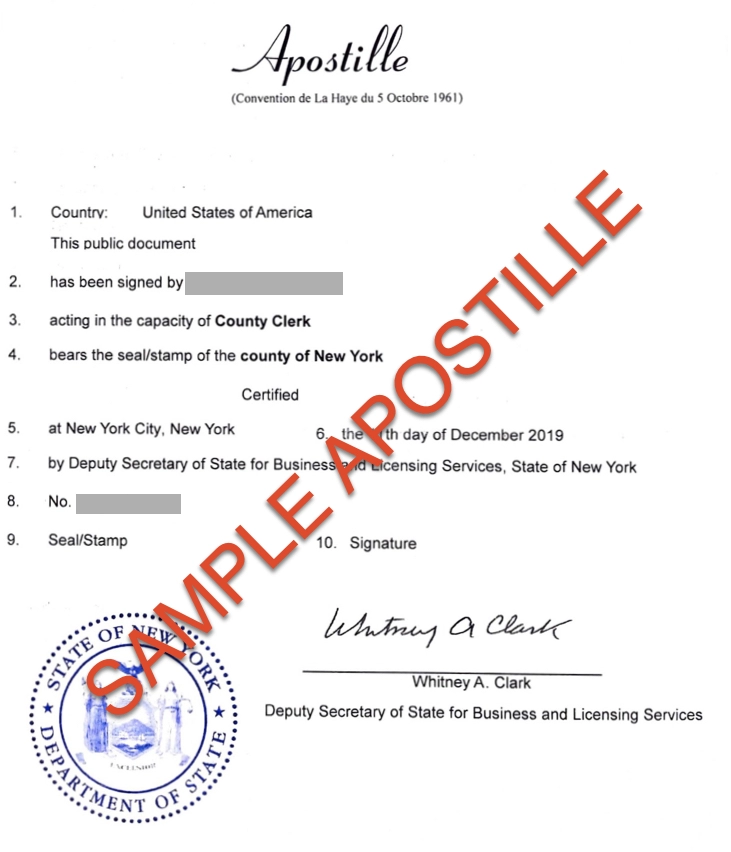Comprehending the Importance of Apostille Qualification and Why It Is Necessary for Legal Files
In the realm of lawful documentation, the process of verifying and verifying documents for international usage is a critical element that can not be forgotten. Among the numerous devices available for this objective, apostille accreditation attracts attention as a structured and universally recognized technique. Understanding the details and effects of apostille certification on legal documents is necessary for people and organizations engaging in cross-border tasks. This accreditation carries profound importance in making sure the authenticity and acceptance of crucial documents beyond nationwide boundaries, yet what specifically does it require, and why has it come to be crucial in today's globalized globe?
The Definition of Apostille Certification
Apostille qualification is a customized type of verification that verifies the authenticity of a legal document for global use. This qualification is critical for making sure that files originating in one nation are acknowledged as valid in an additional, streamlining the process of cross-border transactions, legal process, or individual matters like marriage or adoption. The Hague Apostille Convention of 1961 developed the framework for this streamlined qualification process amongst participating nations.
To get an apostille accreditation, the designated authority in the paper's country of origin must verify the paper's authenticity before attaching the apostille. This accreditation verifies that the trademark, seal, or stamp on the file is real. Houston TX Apostille. It does not validate the components of the paper but instead the authority of the individual or organization providing it. As soon as affixed, the apostille ensures that the file will certainly be accepted as legitimate in any other country that becomes part of the Apostille Convention, without the need for further qualification.
Benefits of Apostille for Legal Documents
The use of apostille qualification enhances the international acknowledgment process for legal papers, supplying substantial benefits in assisting in legal formalities and cross-border involvements. By affixing an apostille certificate, the record comes to be easily approved in nations that are part of the Hague Apostille Convention, getting rid of the need for further authentication.
In addition, apostille qualification enhances the total performance of legal treatments by simplifying the procedure of confirming the legitimacy of a file. This is specifically beneficial in circumstances where time is of the essence, such as in legal issues requiring quick cross-border actions. Furthermore, apostille certification assists in promoting trust and self-confidence among celebrations involved in international purchases, as it serves as a worldwide identified seal of approval for the file's legitimacy. Overall, the benefits of apostille qualification for legal files are critical in advertising smoother international involvements and ensuring conformity with lawful demands throughout boundaries.
Apostille Vs. Legalisation: Key Differences
When comparing the processes of apostille certification and legalisation for legal records, it is necessary to understand the essential differences in their corresponding authentication approaches. An apostille is a streamlined kind of legalization that is approved amongst countries that belong to the Hague Apostille Convention. More Help The apostille process validates the authenticity of the record and the signature of the providing authority. It does not require additional embassy or consulate legalisation, making it a much more uncomplicated and affordable method for verifying documents globally.
On the other hand, legalisation is an extra typical method that involves several actions of verification. It requires verification by numerous authorities, consisting of federal government divisions and foreign embassies or consulates in both the issuing and receiving countries. This process can be much more costly and lengthy contrasted to acquiring an apostille. The option in between apostille qualification and legalisation relies on the particular requirements of the country where the record will be used. Understanding these differences is vital for making certain the appropriate verification of lawful papers for worldwide use.
Nations Accepting Apostille Certification

While the Hague Apostille Convention has considerably simplified the procedure of cross-border file verification, there are still countries that are not event to the convention - Houston TX Apostille. Therefore, documents predestined for these countries might require typical legalization treatments with embassies or consular offices. It is vital for companies and people dealing with worldwide deals to verify the details requirements of the destination nation to ensure compliance with their lawful criteria
Steps to Acquire Apostille for Records
To get an apostille for your papers, you need to begin by determining the proper providing authority in your nation. Once you have identified the correct authority, the next action is to ensure that your document satisfies all the requirements for apostille certification.
After confirming that your document fulfills the requirements, you will certainly need to complete an apostille application type offered by the issuing authority. This form will call for information regarding the document being verified and the nation where it will certainly be made use of. Along with the finished application kind, you will likely need to send the initial file, a copy of your identification, and any kind of appropriate costs.

Verdict
In verdict, apostille accreditation plays an essential duty in making sure the credibility visit site and credibility of lawful documents for international use (Houston TX Apostille). Recognizing the importance of apostille accreditation is essential for organizations and people navigating the intricacies of cross-border transactions and lawful matters. By obtaining apostille accreditation, parties can simplify the process of document verification and authentication, inevitably saving time and sources in the global sector
To obtain an apostille qualification, the designated authority in the paper's nation of origin need to verify the paper's credibility before connecting the apostille. As soon as attached, the apostille guarantees that the document will be approved as legitimate in any various other country that is part of the Apostille Convention, without the demand for additional qualification.
By attaching an apostille certificate, the document comes to be readily accepted in countries that are component of the Hague Apostille Convention, removing the demand for further authentication.Distinguishing between apostille accreditation and legalization discloses the differing acceptance of these verification approaches across different countries, with some nations specifically acknowledging and sticking to the apostille process. The apostille accreditation is extensively approved among countries that are component of the Hague Apostille Convention, which presently has 118 participant states.
Comments on “Houston Texas Apostille Service: Your Course to Global Recognition”